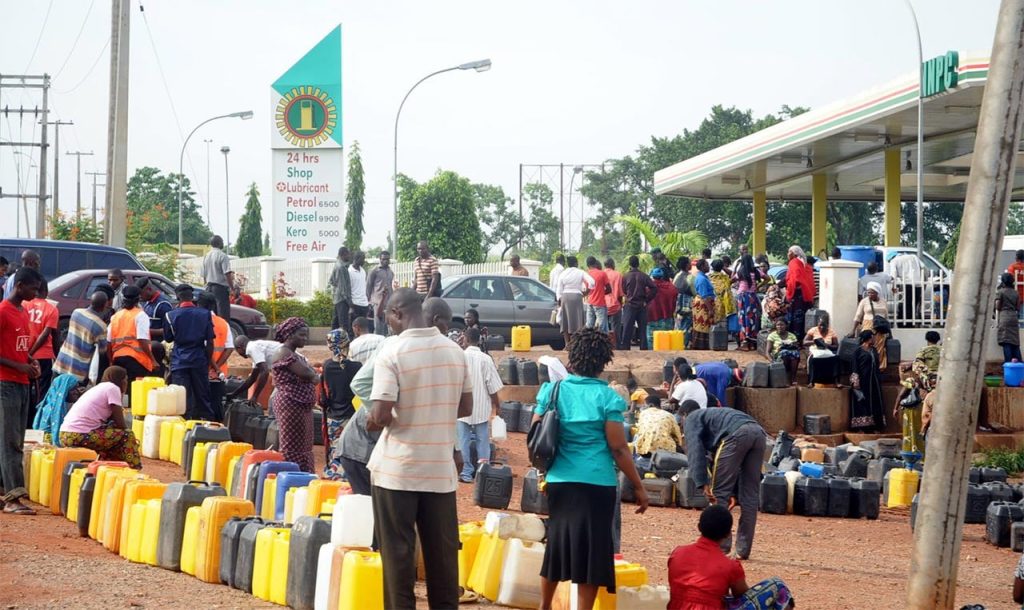The Federal Capital Territory (FCT), Abuja, experienced a sudden and disruptive fuel shortage as numerous retail outlets operated by the Nigerian National Petroleum Corporation Limited (NNPCL) unexpectedly ceased operations. This abrupt closure, reportedly mandated by the NNPCL management, left residents stranded and struggling to procure fuel, resulting in long queues and substantial delays at the few remaining operational stations. The closures, attributed to unspecified logistical challenges, impacted a significant portion of the city, affecting areas such as Lugbe, Airport Road, Zone 3, Lifecamp, and Kubwa. Many motorists were turned away from shuttered stations, with attendants left idle due to the lack of fuel to dispense. This unexpected scarcity created significant inconvenience and frustration for residents reliant on their vehicles for daily commutes and other activities.
The duration of the closures remained uncertain, with initial reports suggesting they would persist until the following week. Attendants at various NNPC stations offered limited information, often stating they were awaiting directives from their suppliers. While some attendants indicated they had exhausted existing petrol stocks, others assured customers that fresh supplies were expected imminently. A degree of ambiguity surrounded the situation, leaving residents unsure of when the fuel shortage would be resolved. The lack of clear communication from NNPCL management exacerbated the anxieties of residents grappling with the sudden scarcity and the resulting disruption to their daily routines.
A station manager at the NNPC Life Camp outlet confirmed the existence of internal adjustments affecting all stations but declined to provide specifics. This manager assured the public that there was no cause for alarm, suggesting that the issues were being addressed and that fuel supplies would resume soon. The manager indicated that some NNPC stations had already begun receiving and selling fuel and expressed optimism that Life Camp would also receive fuel within the next week. Notably, the official pump price remained at 965 naira per litre despite the shortages. This information, however, provided limited solace to residents facing immediate difficulties due to the lack of available fuel.
The initial impact of the closures was somewhat mitigated as NNPCL’s mega stations remained operational, selling existing stock. However, this reprieve proved temporary as these reserves dwindled, exacerbating the fuel crisis and creating further hardship for residents. The suddenness of the shortage caught many off guard, highlighting the vulnerability of the city’s fuel supply chain and the reliance on NNPCL’s retail network. The lack of prior warning left residents with little time to prepare alternative transportation arrangements, forcing many to endure long queues and extended delays in their daily activities.
Attempts to obtain official clarification from NNPCL spokesperson, Femi Soneye, proved unsuccessful. Messages sent to the spokesperson went unanswered, leaving the public with limited information about the underlying causes of the fuel shortage and the expected timeline for resolution. An anonymous source within the company attributed the closures to unforeseen logistical challenges, despite acknowledging ample product reserves in their depots. This lack of transparency and detailed explanation fueled public speculation and further exacerbated the frustration and anxiety felt by residents struggling to navigate the fuel crisis.
The fuel shortage placed a significant strain on residents, forcing many to seek fuel from independent marketers who typically charge higher prices. This added financial burden further aggravated the already difficult situation. Motorists expressed their disappointment with the handling of the crisis and the lack of clear communication from NNPCL. The situation underscored the critical role of reliable fuel supply in maintaining essential services and the daily lives of residents within the FCT, as well as the significant disruption that can arise even from temporary disruptions. The lack of clear communication, coupled with the uncertainty surrounding the duration of the shortage, amplified the negative impact on residents and heightened anxieties about potential future fuel crises.


